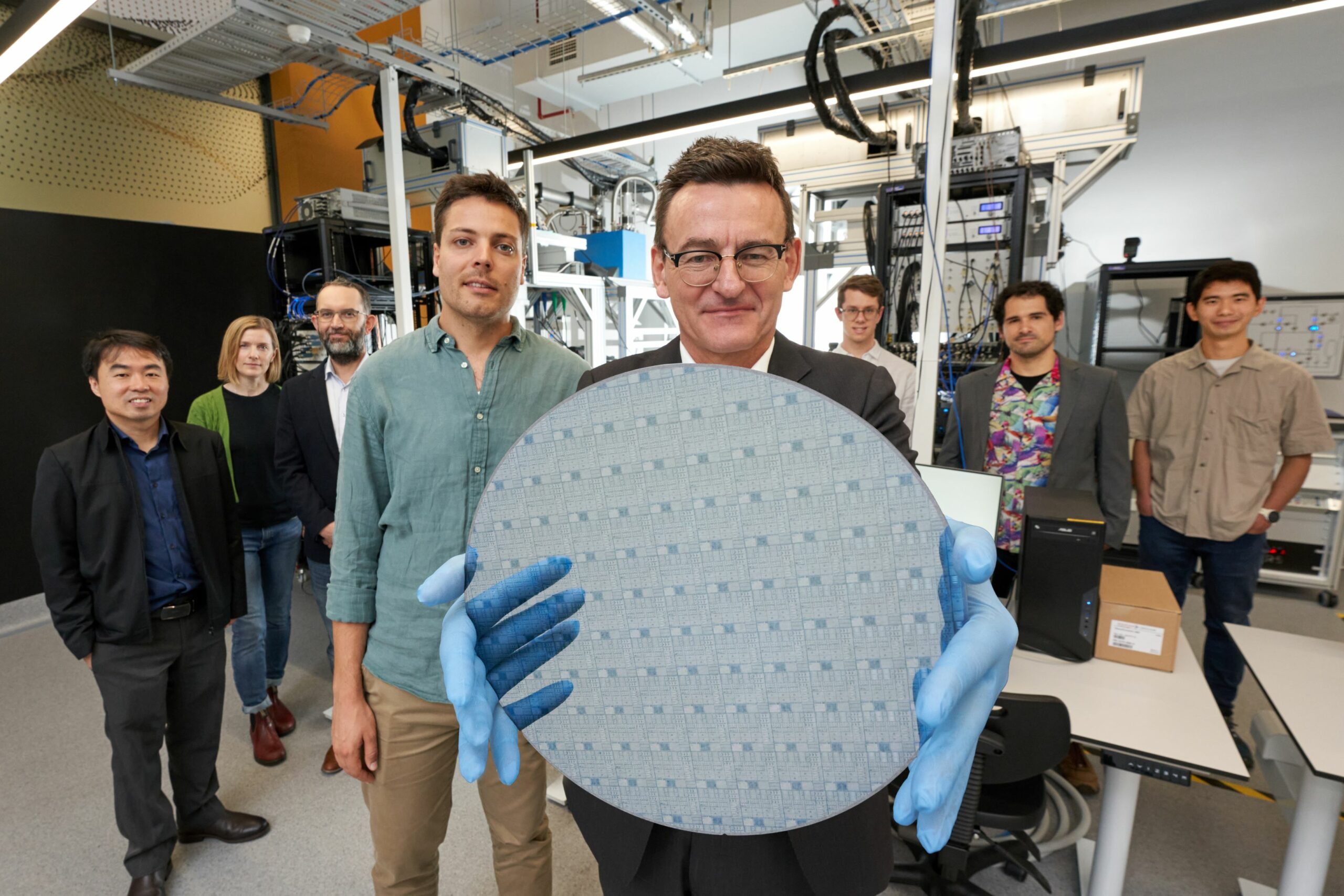Insider Brief
- Diraq announced a record control accuracy of 99.9% for a qubit manufactured by imec using industry-standard CMOS materials on a 300mm silicon wafer.
- The team said this reaches the level of precision required for powerful, full-scale, error-corrected quantum computer processors manufactured by existing silicon chip foundries.
- Diraq has designed chips that will be manufactured this year by GlobalFoundries, a leading semiconductor manufacturer.
- Image: Diraq
PRESS RELEASE — Diraq, a global leader in quantum computing based on silicon quantum dots, today announced a record control accuracy of 99.9% for a quantum bit (qubit) manufactured by imec using industry-standard CMOS materials on a 300mm silicon wafer. By confirming 99.9% single qubit control fidelity, Diraq reaches the level of precision required for powerful, full-scale, error-corrected quantum computer processors manufactured by existing silicon chip foundries.
“The record demonstration was achieved using a qubit device manufactured by imec, the world’s leading independent nanoelectronics R&D hub, based in Leuven, Belgium,” said Andrew Dzurak, CEO and Founder of Diraq. “Diraq is very excited to be working with imec. This relationship is crucial for Diraq’s technology roadmap, through which we intend to achieve a fully error-corrected quantum computing system ahead of our competitors.”
The result, demonstrated on the imec device, is the highest single qubit fidelity demonstrated to date for a silicon spin qubit made in a 300mm foundry environment using standard CMOS materials and processes.

The highly precise measurement of qubit fidelity in the device was made possible by the sophisticated qubit control and measurement techniques for silicon qubits that Diraq has developed over the past decade, including real-time feedback, optimized qubit initialisation, control voltage pulse shaping, and advanced analysis tools including gate set tomography (GST) and randomized benchmarking.
“It is absolutely thrilling to see the prototype 300mm qubits perform so well,” said Nard Dumoulin Stuyck, Quantum Design and Measurement Engineer at Diraq leading the device testing who previously conducted Ph.D. research at imec. “I know from first-hand experience what incredible talent is present at both Diraq and imec and anticipate tremendous progress from this powerful connection between these two organizations.”
Diraq, with world-leading expertise in quantum control and quantum processor design, is developing qubits that can be integrated with the standard CMOS transistors that underpin today’s IT industry and are now manufactured in their billions on the silicon chips that power our mobile devices and cloud computing infrastructure. This proof point is a key milestone that paves the way towards integrating high-quality qubits with standard CMOS transistors on a single chip.
Diraq has designed chips that will be manufactured this year by GlobalFoundries, a leading semiconductor manufacturer, on their 22FDX® technology. These chips will monolithically integrate silicon qubit devices with standard transistors, a powerful combination that will be important to push qubit numbers on a chip to the million mark and beyond.
“Commercially viable quantum computing capable of revolutionary applications, including the design of targeted pharmaceuticals and advanced materials, must employ quantum error correction processes that will require many millions of qubits,” Dzurak said. “Our roadmap to develop quantum processor chips on this scale leverages existing semiconductor foundry capabilities which have benefited from over 60 years of development and trillions of dollars of investment.”
Because of their extremely small size, comparable to modern transistors, silicon CMOS qubits offer the prospect of many millions of qubits integrated on one chip with a similar number of conventional transistors. This differentiates them from other modalities that will require large, energy intensive, and costly systems.
The imec device used by Diraq to demonstrate the 99.9% qubit fidelity result was configured using a layout similar to earlier work by Diraq team members, but now redesigned and fabricated by imec in their 300mm industrial fabrication line.
In over 30 papers in Nature-group journals over the past decade, the Diraq team has produced multiple world-first results for silicon spin qubit research and has patented their technology along the way. Just published in Nature last month, the team demonstrated the high-fidelity operation of silicon qubits at a temperature of one kelvin – high enough to cope with the heat generated by the classical transistors needed to control a quantum processor.
Diraq’s latest work represents another step towards realizing the potential of quantum computing to revolutionize drug discovery, optimisation, cryptography, and more. The team plans to present their results at an international semiconductor industry conference in the near future.














